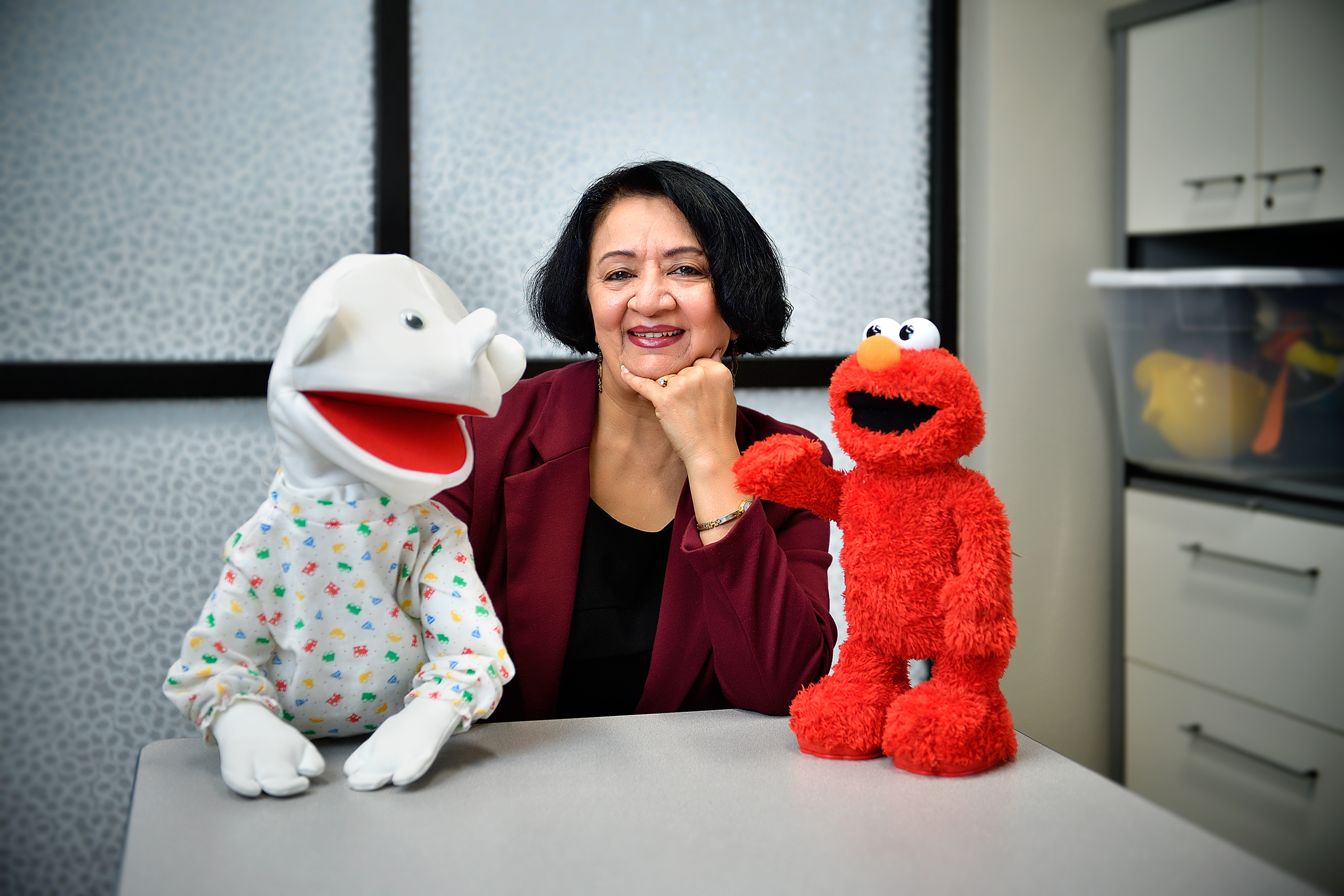
DENTON, Texas (UNT) — Toys are always among the hottest-selling items of the holiday season, and this December marks Safe Toys and Gifts Month – a nationwide push to ensure presents match the abilities of the receiving child. Smita Mehta, a professor of special education in the Department of Educational Psychology at the University of North Texas, offers tips for families to buy toys for children with special needs.
Contact Mehta at smita.mehta@unt.edu or 940-369-7168 (office).
“Play is a tool to promote learning for all children, especially those with special needs,” says Mehta, adding the toys can serve a role in a child’s education. “Play serves very important functions in cognitive, language, social, communication and emotional development.”
Mehta says gift givers should look for toys that can help turn the child’s developmental challenges into strengths:
- “When selecting toys or educational play materials, think from the perspective of the child,” says Mehta, a former preschool teacher who also used to assess babies ages 12 to 36 months for the presence of a disability.
- “Individuals with disabilities and emotional behavior disorders often lack strong social interaction and communication skills, which are critical for success in life,” she continues. “Select toys such as talking books, stuffed animals or puppets to incorporate language learning and social interaction.”
- “For children with visual impairment or weak eyesight, it’s important to incorporate things that activate other sensory elements – such as sounds, movements or textures,” she adds. “Try textures like soft versus hard toys. Something like Play-Doh can teach the child to manipulate texture. Also, let the child play with different shapes, like teddy bears or dolls that have different textured body parts.”
- “For children lacking fine motor skills, puzzles that come with pegs are easy to use and help improve those skills,” says Mehta.
- “Board games like ‘Chutes and Ladders’ and ‘Connect Four’ teach so many skills, such as taking turns with partners and eye-hand coordination,” she says.
Mehta says many everyday play items, sometimes with small modifications, can help also work well for kids with special needs:
- “Balls are fun, but children may have difficulty with eye-hand coordination for catching and throwing,” she continues. “For that, start with a less complex skill. Sit on the floor with the child and roll the ball back and forth on the ground.”
- “Books are a great way to learn, but some children may lack fine motor skills that makes it difficult to turn pages. However, the adult should not flip all the pages, which sends the communication to the child that the adult is in charge. Instead, use Post-it® flags or tape small strips of paper to create page turners,” Mehta says.
Mehta adds that what is done with gifts afterward can be just as important:
- “Start by setting an environment that encourages children to explore and play,” she says. “Parents should resist the urge to teach or explain during play. For instance, if you have a toy school bus, try just pushing the bus around or turning the wheels instead of trying to explain the parts of the bus. Otherwise, for the child, all the charm is lost with the play itself. It’s important to ensure that play is play and that the adults follow the child’s lead instead of setting an agenda.”
- “Work on the child’s weaknesses while he or she is young,” she says, adding that weaknesses can be more challenging to change when the child is older.
- Mehta says children with special needs should receive similar opportunities as other children to learn different things through play. “Many people think that some kids will not benefit from play because they have a disability, and that’s simply not true,” she says.
- “Be patient,” says Mehta. “Sometimes parents want the play to be perfect and will get anxious when their child struggles. Don’t worry about that; just focus on having a good time and ensuring the kid is actively engaged. The learning will come.”




